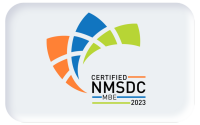Virtually every organization with a regular litigation load eventually faces a critical choice. Do they continue to rely on a medley of outside law firms to manage eDiscovery or take control of the eDiscovery process themselves?
It is a natural extension of outside counsel’s role in litigation to let the law firm handle eDiscovery as part of discovery. This may be through the law firm’s internal litigation support or their preferred eDiscovery service provider. This model may work well and be quite convenient when litigation matters are relatively few and when one or two law firms are handling the majority of matters.
But at some point, this model of relying on law firms to manage eDiscovery data, technology, and defend the case’s merits can start to break. This is usually because the number of matters and demands of eDiscovery reach a tipping point.
- Too Many eDiscovery Providers
- Decreased Visibility
- Duplication of Effort
- Lack of Continuity and Learning
- Litigation Management
- Waste of Effort and Work Product
- Inconsistency
- Lack of Cost Control
- Little is Learned or Improved
- Value Creation Zones are Broken Down
- Fragmentation
- Reaching the Critical Point of eDiscovery Management
- How TCDI Can Help Manage eDiscovery
Signs it's Time to Manage eDiscovery Directly With a Provider
Too Many eDiscovery Providers
Each law firm tends to have one or two eDiscovery providers they rely on. Consequently, in-house counsel has to work with several providers with different tools, processes, and cultures. They also have to track and manage different pricing models and types of invoices submitted. For example, working with too many project managers is one of the most frequently cited frustrations of in-house litigation counsel.
Decreased Visibility
When clients are dealing with multiple providers or firms, data becomes spread across multiple systems. This can result in redundant work product and decreased visibility across data and reporting. It can also cause strains on collaboration and impact cost and turnaround times. Having real-time access to all case-related data and documents in a single repository under the management of one eDiscovery provider is key to maintaining visibility across the litigation landscape.
Duplication of Effort
Across the entire eDiscovery process, there is duplication and thus inefficiency. For example, the in-house data collection resource is recollecting similar or overlapping data sets from the same key custodians for different firms and different matters. Or privilege and keyword screens have to be recreated matter by matter.
Lack of Continuity and Learning
Because eDiscovery providers might appear for only one or two matters the effort of learning to work with them is wasted. The provider cannot invest time and energy in to understanding your data, custodians, types of litigation and business. It is often not worth in-house counsel’s time to invest in the relationship with the eDiscovery providers.
Litigation Mismanagement
Counsel can’t find efficiencies by managing eDiscovery across similar or related matters because each law firm deals only with their matters. For example, common or overlapping data sets can’t be collected once and reused between matters in a single repository managed by a single eDiscovery provider. Consistent document coding schemes are hard to apply.
Waste of Effort and Work Product
A good example of waste is coding/issue tagging during review of ESI. After all the effort expended, that coding will be lost when the matter is disposed. Or it will sit in a provider-hosted database where it can’t easily be reused. But, already coded data can often be reused, especially for companies facing multiple similar or overlapping claims, like in MDL.
Inconsistency
As a result of too many hands in the eDiscovery process on a matter-by-matter basis, inconsistency creeps in. This can cause errors that lead to expensive delays, missed deadlines, or embarrassing clawback efforts. And no standard operating procedures – key to an efficient, repeatable process — can be established for the company’s discovery process.
Lack of Cost Control
With multiple firms and eDiscovery providers, it’s tough to determine what is being spent, how and when. This makes future budget decisions and finding efficiencies nearly impossible. For example, different pricing models make it hard to establish baselines on which to determine a cost control program or compare costs between providers.
Little is Learned or Improved
Because the nature of law firm-managed eDiscovery is mostly transactional, there can be no constant improvement or cost control because there are no standard baselines, processes, or metrics. Lessons can’t be learned because knowledge is compartmentalized and transitory as firms and providers come and go.
Value Creation Zones are Broken Down
You wouldn’t reach out to your eDiscovery provider to try a case for you, would you? Of course not, because their value creation zone is in managing the data and technology, not providing legal advice. A law firm’s value is centered around focusing on the merits of the case and legal strategy for their matters. Law firms also look at the world via the frame of matters, so other types of value, like developing best practices are out of scope.
Maintaining law firms and providers in their respective value creation zones helps create efficiencies and cost savings when eDiscovery demands reach a certain tipping point.
Fragmentation
The overall result is fragmentation across the entire eDiscovery process. In-house counsel now has a process based on different pricing schemes, multiple project managers, multiple software tools, varying processes, and so on. Fragmentation leads to errors, cost overruns, and waste in the eDiscovery process.
Reaching the Critical Point of eDiscovery Management
Once these issues reach a critical point where internal resources are overburdened, costs are out of control and deadlines are missed – most in-house counsel realize they need their own eDiscovery providers to manage their matters holistically. They realize the importance of a long-term relationship with those providers to deliver real value in both directions.
How TCDI Can Help Manage eDiscovery
The transition from law firm management to the provider partner model can be challenging but TCDI has the expertise to help you analyze the current state and challenges of your present eDiscovery process, make recommendations about a more efficient future and help build a custom end-to-end eDiscovery process for your company.
TCDI is also known for maintaining long-term business partner relationships with major corporations over many years, managing eDiscovery and providing value in complex litigation.





